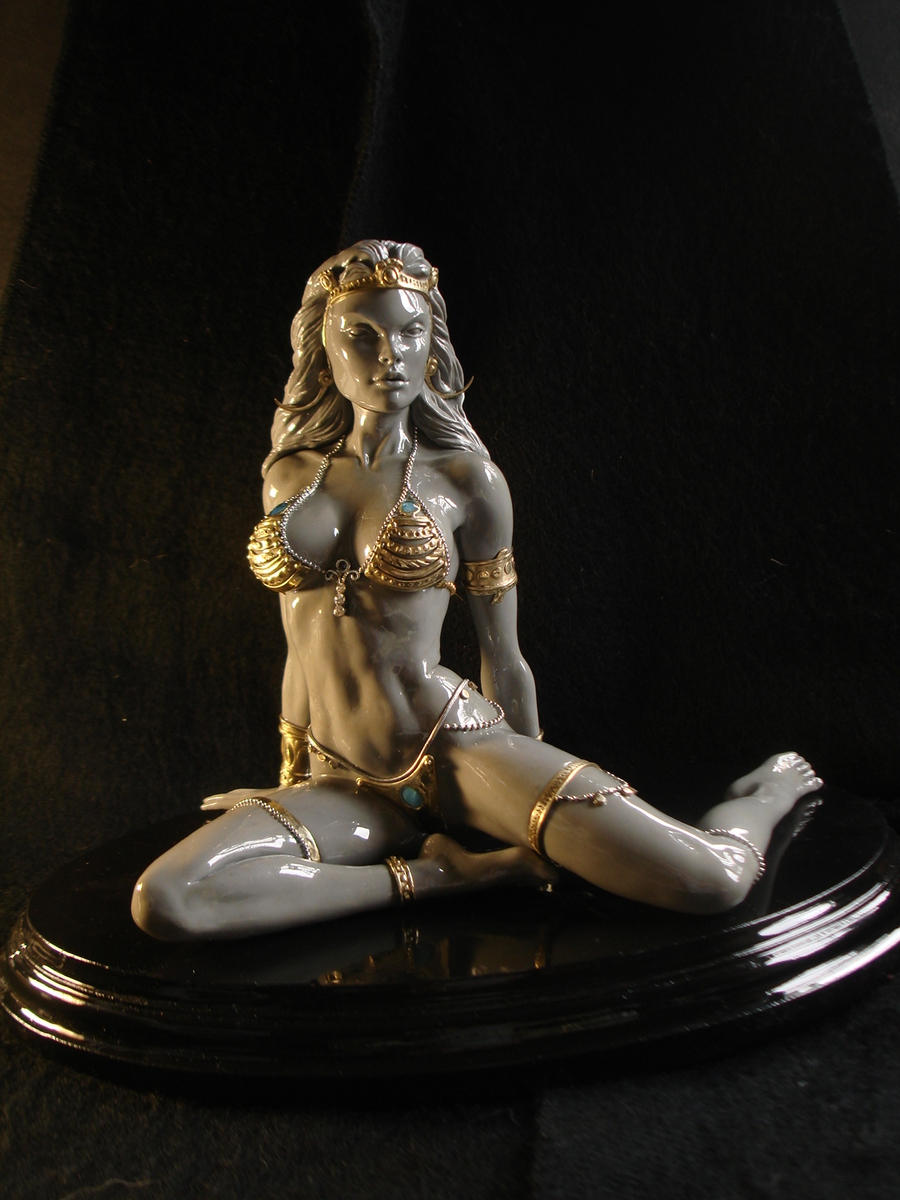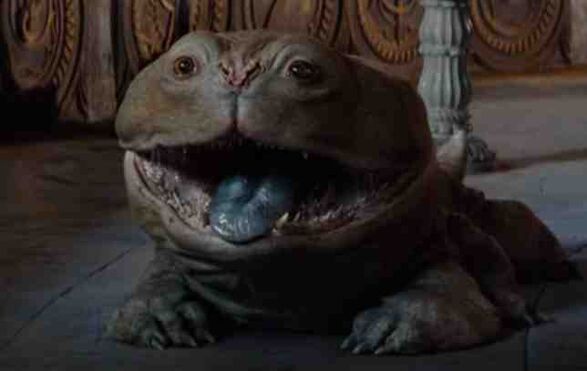.
 |
| An artist's conception of John Carter |
It was spectacular in many ways, though anyone who knows the least bit about science will be well aware that ERB wrote fantastical stories that had absolutely no basis in science, and the John Carter stories are no exception; in fact, they're more fantastic than almost any of the other ones. (His stories about journeying to the center of the Earth may come a close second.)
The movie stars actors not familiar to me: Taylor Kitsch as John Carter, Lynn Collins as Dejah Thoris, Willem Dafoe as Tars Tarkas (a member of a Martian humaniod species which has four arms), and Samantha Morton as Sola, the daughter of Tars.
[To be slightly continued heh heh heh ...]
OK.
 |
| Movie conception of John Carter and Dejah Thoris |
 |
| A piece of sculpture representing Dejah Thoris |
Meanwhile, in another part of the planet, we find that there is a civilization of people who are almost human, a species essentially indistinguishable from Earth humans (except for their wild tattoos), and in the original novel, the conjecture is that they were actually descended from stock from Earth. A being with super powers (called a Thern) is manipulating the rulers of two nations to make a marriage between the daughter of one ruler and the other ruler. The girl, Princess Dejah Thoris, is vehemently opposed to the plan. Dejah T. is not only a single-minded girl of action and a fair fighter, she is also a scientist. She has just discovered a light frequency that has magical powers, but one of the Thern (who are shape-shifters) manages to sabotage her experiment.
 |
| Dejah Thoris before the Wedding |
The movie is worth watching, simply for the sake of the visual beauty of it. John Carter and Dejah Thoris are certainly quite a handsome pair of protagonists, but the fauna of Mars has been represented graphically in beautiful detail. There is a dog-like creature Woola, a pet of Sola, who is particularly cute. Furthermore, there are aircraft that are powered by sunlight, which are amazingly graceful. Unfortunately, I was not able to tell the aircraft of the good guys from those of the bad guys.
 |
| Woola |
Dejah Thoris was portrayed in ERB's time (and in subsequent reprints of his fantasy novels) as a scantily-dressed young woman, sometimes more of an ornamental type, and sometimes as a forceful young woman who was no shrinking violet. Rice Burroughs himself described her as not being heavily clothed; none of his protagonists were very much into modest dress. Somehow, the movie designers have chosen, in my opinion, a reasonable style of costume for the story; the humans are all heavily tattooed, and dressed more for action (with the exception of the shawls and cloaks some of them wore) than for warmth. The implication was that Mars is a hot place. (The same was true of how ERB represented Africa in his Tarzan novels.) The image that follows compares an artist's impression of Dejah Thoris, with the movie representation. The movie costume is clearly a plausible one, combining the sort of body ornamentation that we would, at the present time, imagine in a savage society, without the gratuitous near-nudity that artists for book covers depicted as a means of selling their product.
[Added later:
It turns out that the entire book "A Princess of Mars" is available online, for free. In the story, Rice Burroughs describes Dejah Thoris as wearing only body ornaments, and being otherwise absolutely naked. Nowadays, of course, we are able to pack quite a lot of excitement into a movie without going to the extreme of complete nudity. As a result of this eccentricity on the part of the author, I wouldn't be surprised if he lost a great many women readers who just did not have time for that sort of silliness, but might have been sympathetic to the character of Dejah Thoris as represented in the movie. The movie is an immense improvement on the original in many details, though it does bring out some of the implausibility of the story in many ways.]
Arch





No comments:
Post a Comment